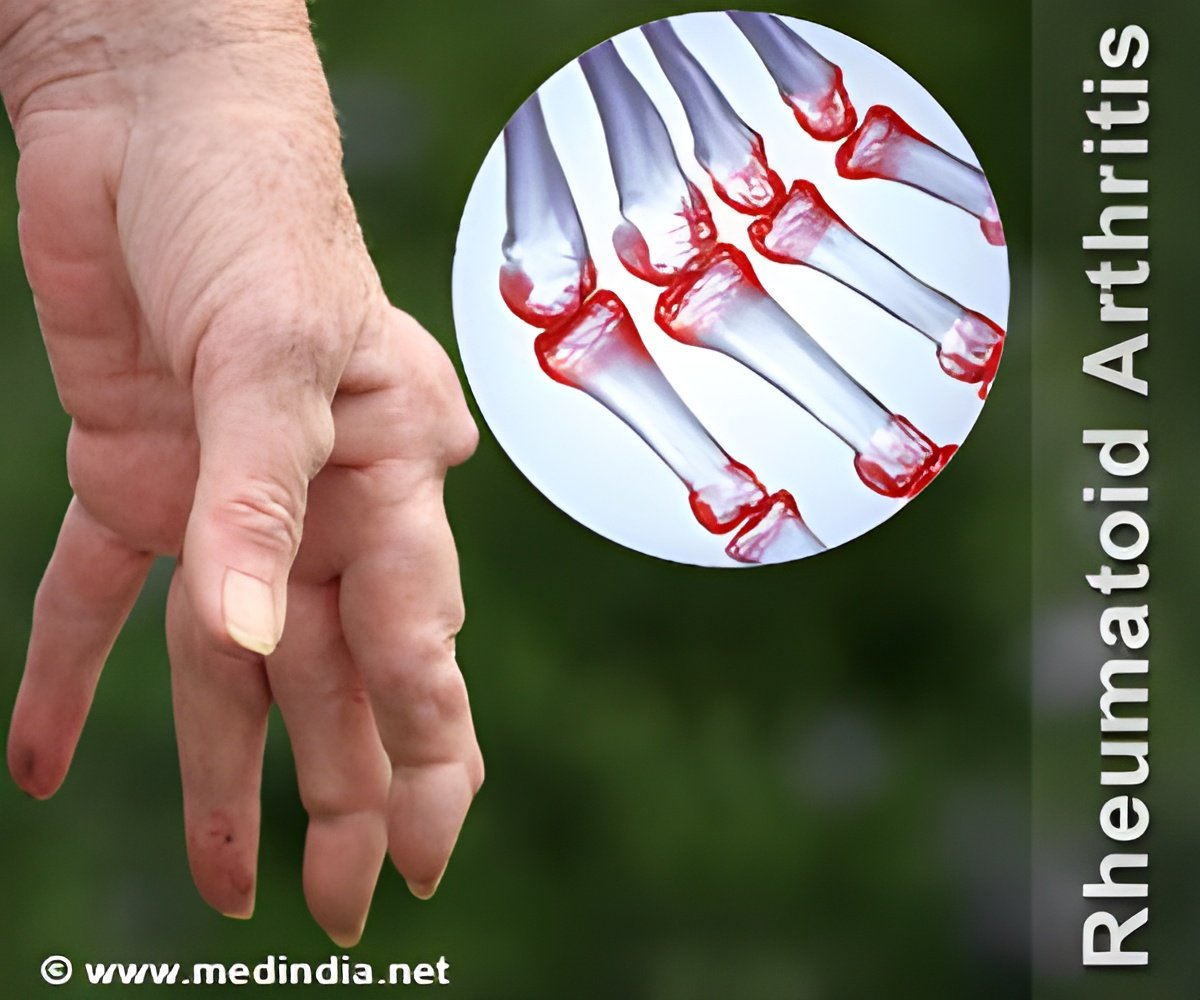
Researchers at the University of Nebraska Medical Center, the University of Minnesota, the University of Alabama at Birmingham, the University of Pittsburgh, and the National Data Bank for Rheumatic Diseases compared the long-term cost-effectiveness of using a triple therapy approach to treating early RA with using a more aggressive approach with a newer, TNF-inhibitor agent plus methotrexate.
The researchers used patient data from the double-blind, randomized, two-year Treatment of Early Aggressive RA (TEAR) trial and the National Data Bank for Rheumatic Diseases to measure treatment outcomes and estimate long-term cost of these therapies. They evaluated four strategies: Immediate triple therapy of methotrexate, sulfasalazine and hydroxychloroquine; immediate therapy of etancercept, an anti-TNF agent, and methotrexate; a step-up triple therapy and a step-up etanercept therapy. The two step-up therapies involve switching a patient with persistent disease activity from methotrexate monotherapy to either triple therapy or methotrexate plus etanercept after six months. The researchers simulated an extension of the two years of TEAR results to lifetime use of the therapies to estimate the long-term cost.
"Randomized controlled trials between active therapies are rare and important in treating RA. We felt it was important to determine the quantitative differences between these four treatment arms of early RA," says Kaleb Michaud, PhD; assistant professor, University of Nebraska Medical Center & co-director, National Data Bank for Rheumatic Diseases; and lead investigator in the study.
The researchers estimated Quality Adjusted Life Year (called QALY) measurements by analyzing various data from TEAR, including disease-activity scores in 28 joints and results of Health Assessment Questionnaires. They used a Markov simulation model to estimate QALY measurements and the costs associated with therapy approaches in the TEAR trial. QALY is a standard measurement to determine the effectiveness of various medical interventions in achieving quality and quantity of life over the long term.
Looking at the four therapy approaches, the researchers determined that the lifetime benefits of all four were comparable, or within 0.06 QALY scores. However, the two therapies using etanercept were almost twice as expensive due to the higher cost of the anti-TNF agent. The researchers estimated that the incremental cost-effectiveness ratio of using immediate etanercept therapy versus immediate triple therapy was $837,100 per QALY score over the long term. This increase in cost and the difference in incremental cost-effectiveness ratio may be too high for many health care settings to find acceptable, considering the comparable benefits, the researchers concluded.
Advertisement
Patients should talk to their rheumatologists to determine their best course of treatment.
Advertisement














